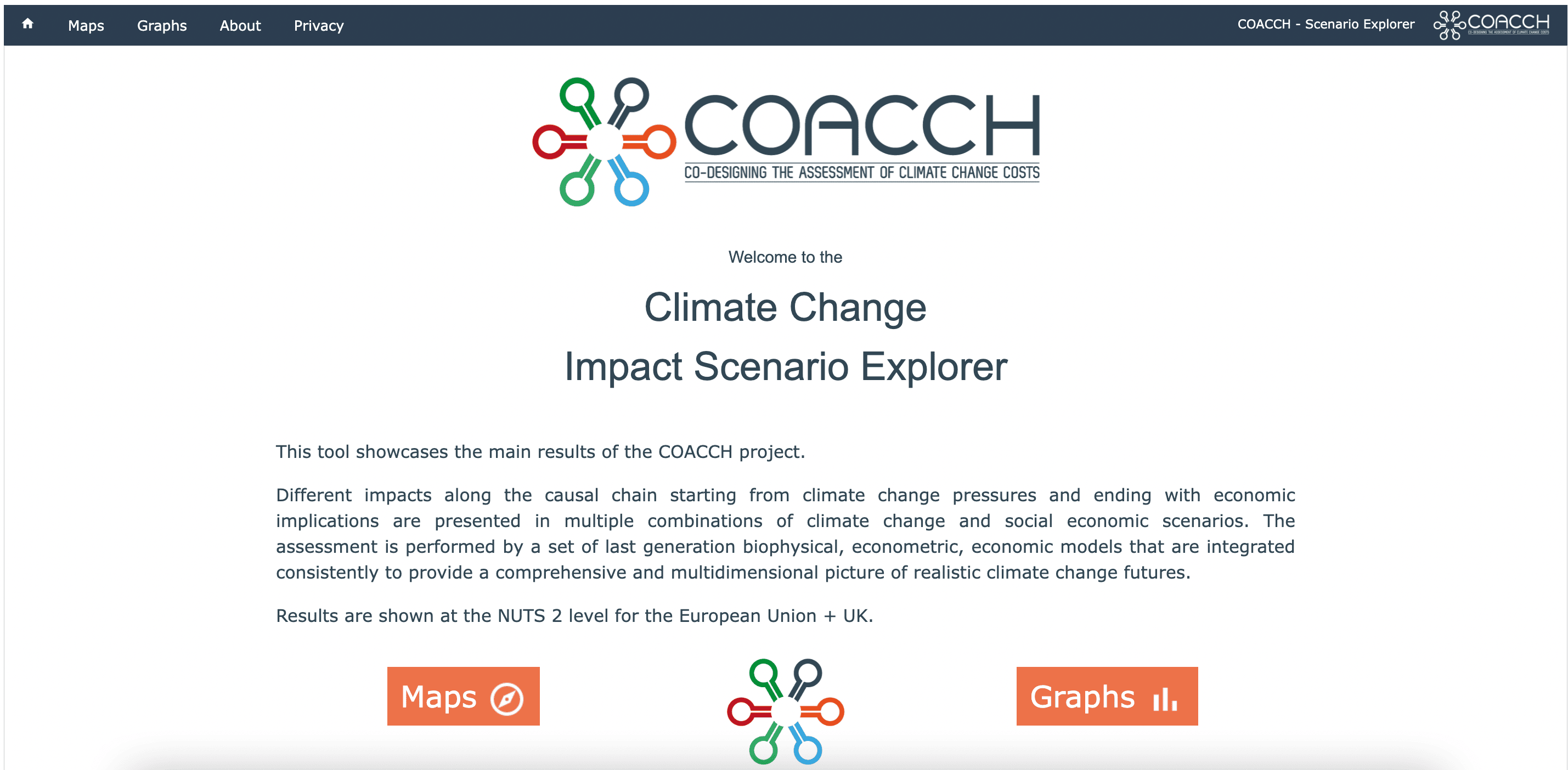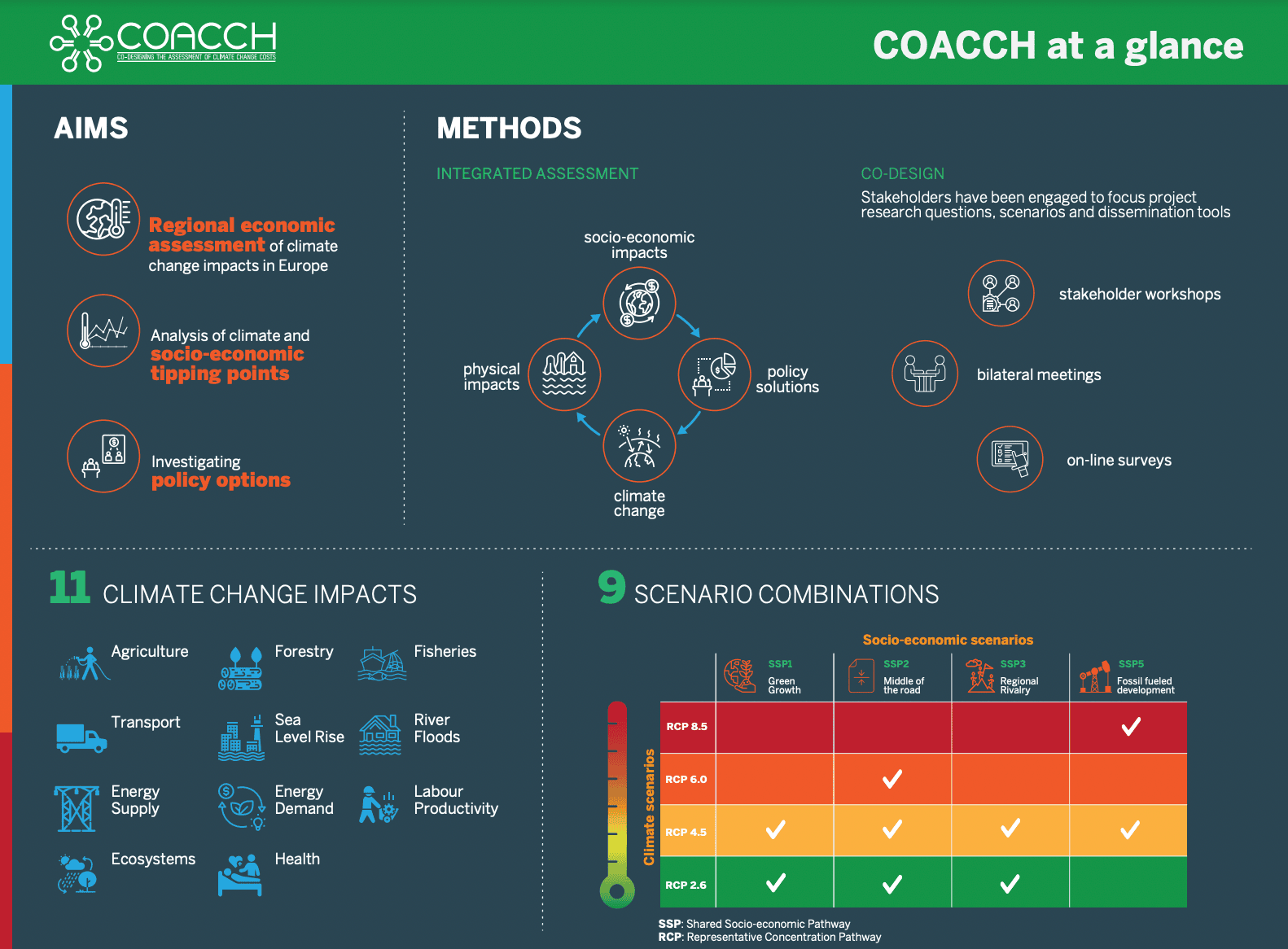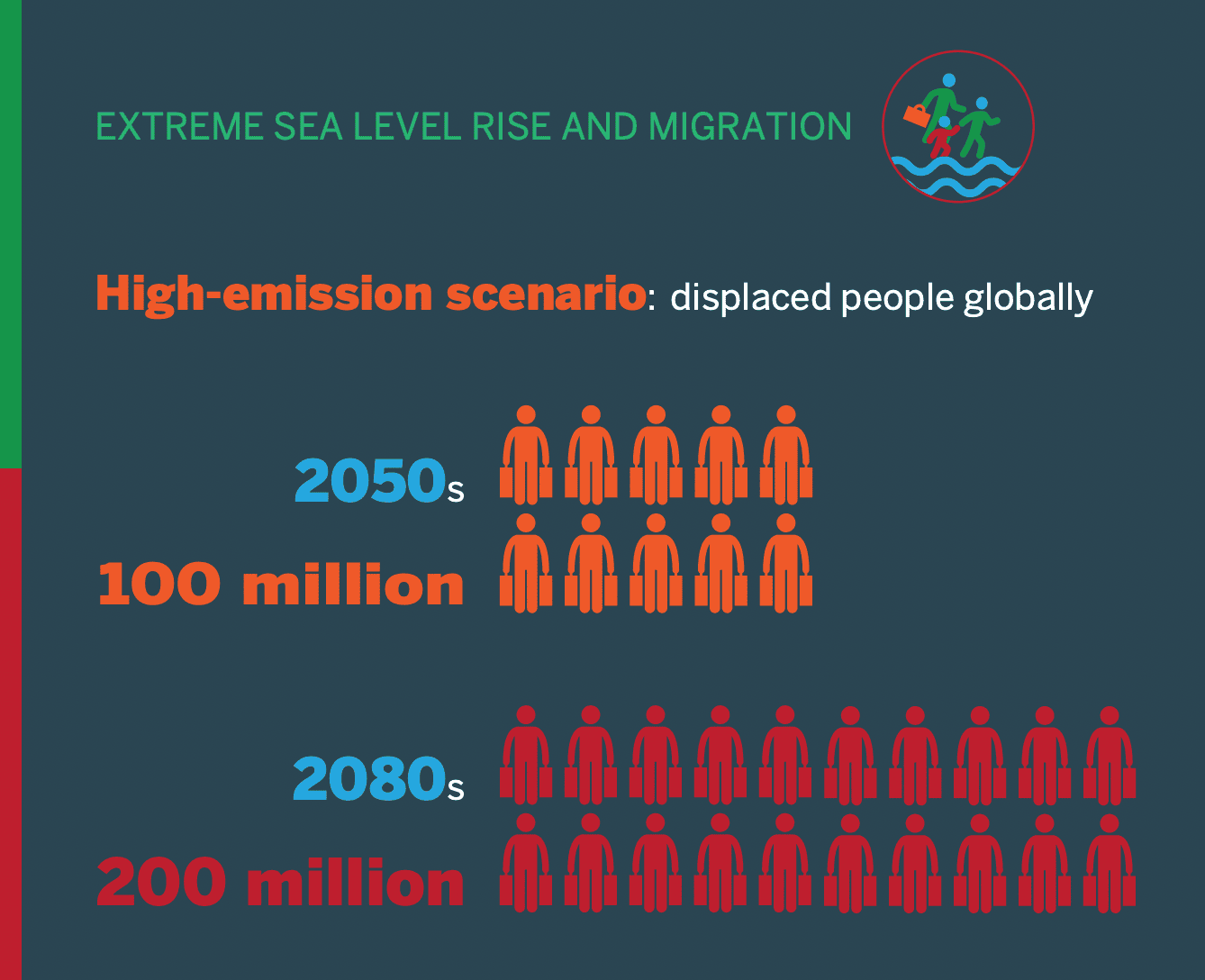
Interactive, user-friendly, and based on open-access data: the Climate Change Impact Scenario Explorer is available and ready to enhance risk and cost assessments of climate change. From a co-design process to the delivery of solutions, decision-makers can now visualize and use up-to-date climate data by navigating through sectors, timelines, scenarios, and regions with the new tool provided by COACCH, a Horizon 2020 project coordinated by CMCC.
Climate change and its impacts stand center stage among today’s global issues. Now more than ever, making informed and efficient decisions that help build a better future requires a combination of reliable scientific data, as well as innovative and smart tools to analyze and make sense of it.
This is now possible thanks to the Climate Change Impact Scenario Explorer: a web-based tool that allows expert and non-expert users to assess the projected economic impacts of climate change in all EU countries in a variety of different sectors: from forestry to fishery, agriculture, transport and energy – just to name a few.
The tool, developed within COACCH (CO-designing the Assessment of Climate CHange costs) – a Horizon2020 project coordinated by CMCC, works by combining different datasets and scenarios developed within the project to allow for both in-depth analyses and general overviews, that can be easily read and downloaded by users. Furthermore, future projections can go up to the year 2070.
Climate Change Impact Scenario Explorer: user-friendly, interactive, and open-access
The most innovative and useful among the numerous outcomes generated by the COACCH project, the Climate Change Impact Scenario Explorer, is a user-friendly, interactive online platform with open-access data provided by the project research that can be used to explore and combine different climate scenarios for the EU. This tool allows expert and non-expert users to visualize and understand the different consequences of climate change by choosing different combinations of Shared Socio-Economic Pathways (SSPs – scenarios of projected socioeconomic global changes, in this case up to 2070) and Representative Concentration Pathways (RCPs – pathways that describe different climate futures depending on the volume of greenhouse gasses emitted in the years to come).
Homepage of the Climate Change Scenario Explorer web platform.
COACCH results span over multiple dimensions: space (countries-regions), time (years), scenarios (combinations of SSPs and RCPs), and climate change impacts. On the platform, users can choose between two different visualizations of the data: maps, which emphasize and summarize the spatial distribution of impacts; and graphs, which enable more specific explorations of other dimensions. A user-friendly guide is available to walk visitors through the platform, along with two specific video tutorials.
The innovative approach of co-design
Particularly in its Horizon 2020 research and innovation programme, The European Commission has repeatedly underlined that stakeholder engagement is crucial to support climate change risk assessment and decision-making. Throughout the development and delivery of its research outcomes, including the Scenario Explorer, the COACCH project has used an innovative process of co-design, co-production and co-dissemination of knowledge.
“COACCH is a fully co-designed project: this means that key stakeholders from the business, the investment, the research and the policy-making communities are asked not only to provide insights on the question the project explores, but also on its dissemination and communication strategy.” F. Bosello, COACCH Project Coordinator – CMCC
This approach involves a major change from previous European economic cost studies on climate change, which have been science-led and used stakeholder engagement only to communicate results. To take stock of this innovative process, the COACCH team produced dedicated guidelines for co-design which are easily accessible from the website.
Visualizing results
Data visualization can be a powerful and effective tool to help showcase the numerous – and often complex – scientific results of research projects and make them accessible to a wider audience. COACCH illustrates its outcomes, including some of the scenario combinations of the Climate Change Impacts Explorer, in four dedicated infographics. The data shown belongs to the project policy briefs, short documents produced as part of the project stakeholder engagement process to share, discuss, co-design and co-disseminate the project’s main findings and their policy implications.
A representative section of the general infographic “COACCH at a glance”, where the aims, methods, impacts and scenario combinations are illustrated.
The four infographics include a general overview, a focus on macroeconomic impacts, sectoral assessments, and policy actions. All of them can be accessed and downloaded from the website.
A new frontier on impacts analysis: socio-economic tipping points (SETPs)
According to the latest Report by the IPCC (Intergovernmental Panel on Climate Change), tipping points are “a critical threshold beyond which a system reorganizes, often abruptly and/or irreversibly.” In other words, they are climate or ecological breaking points that once reached make it necessary for socio-economic systems to reorganize in order to survive (e.g. extreme deforestation due to higher temperatures, or melting of the Antarctic ice sheets).
Based on this now widely used term, the COACCH project has developed a new concept that could change the angle through which we see and address climate change impacts: socio-economic tipping points (SETPs).
This idea recognises that even gradual climate change may abruptly and significantly alter the functioning of socioeconomic systems, which can lead to major economic costs, especially at a local level. These changes may arise directly in Europe but may also involve global events that subsequently spill-over into Europe.
“The COACCH project focuses on tipping points and in addition to considering catastrophic events on a global level, it also takes into account those events that could imply huge economic losses more locally: we call these the socio-economic tipping points.” F. Bosello, COACCH Project Coordinator – CMCC
An excerpt from the COACCH infographic on “Sectoral assessments”
The phenomenon of migration due to extreme sea-level rise represents a clear example of a SETP: given a strong climate change impact (sea level rise), a socio-economic system is forced to change irreversibly, with consequences both on the economic front (e.g. less workforce to enhance local economy) and on a social level (people suffer and are forced to leave their homes and social environment).
For more information
- For further information on COACCH policy-related results, see the Project Policy Briefs and infographics
- For further information about the co-design process, see the policy brief Co-creating research: best practice guidelines
- The activities of COACCH project were coordinated and developed by the researchers of CMCC@Ca’Foscari, the result of the strategic partnership between CMCC Foundation and Ca’ Foscari University of Venice. For further information about CMCC@Ca’Foscari, click here
Photo by Daniel Jensen on Unsplash





